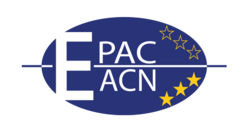19th Annual Professional Conference and General Assembly of the European anti-corruption networks EPAC/EACN in Stockholm, Sweden
This year the members of the European networks "European Partners against Corruption" (EPAC) and "European contact-point network against corruption" (EACN) met at the invitation of the Swedish police (Special Investigations Department) in Stockholm.
The event took place from 10 to 12 December with the focus on "Understanding the underlying mechanisms of corruption – global challenges and preventive measures" and was co-financed by the European Union's Internal Security Fund - Police. The objectives of the conference were:
- to provide a platform for discussion about current developments in the field of preventing and combating corruption;
- to offer a stage for reviewing and learning from the best practices, inspiring people, building networks and taking action to reduce corruption.
At the beginning, the Swedish Minister of Home Affairs, Mikael Damberg, the General Commissioner of the Swedish Police, Anders Thornberg, and the EPAC/EACN President and Director of BAK, Andreas Wieselthaler, welcomed 136 participants from 36 European countries and regional as well as international organizations.
In the further course of the conference, topics such as the current international and European approaches to preventing and combating corruption, the role of whistleblowers, the latest requirements in the area of anti-corruption training, corruption risks in connection with the issuance of visas and permits, as well as the challenges of the digital revolution and its direct influence on the work of police oversight bodies were discussed in various panels and workshops, some of which took place in parallel. Additional sessions focused on international trade, corruption risks and preventive work, codes of silence, curbing corruption sector by sector, a European benchmark for policing the police, public procurement, insights from the Quality of Government Institute, conflict of interest and integrity in the public sphere, etc. Besides, a report was delivered on the results of the World Café, held in Austria during the 18th EPAC/EACN Annual Professional Conference and focusing on the expectations and concerns of EPAC/EACN members.
The conference featured a number of high-profile speakers. On the first day, the plenary session entitled "Underlying mechanisms of corruption and possible countermeasures" was opened by the Director-General of the European Anti-Fraud Office (OLAF). In his speech, Ville Itälä pointed out that cooperation, transparency and trust constitute the main cornerstones on which EPAC/EACN is built. External speakers at the conference included Sophie Meingast from UNODC, Nicholas Charron from the University of Gothenburg, Ulrik Åshuvud from Transparency International in Sweden, Frédéric Pierson from Europol as well as Mark Pyman and Matthew Gardner from the British organization Curbing Corruption. Also worth mentioning are outstanding contributions from several EPAC/EACN members.
One of the highlights of the conference was the award ceremony, at which the EPAC/EACN Award was presented for the second time. The authorities participating in the competition had the opportunity to showcase their most innovative, successful and recently completed national and regional projects. Following these presentations, all conference attendees were invited to vote for the most innovative project complying with the networks’ mission. This year there were entries from Bulgaria (“Stay clean, say NO to corruption”), Estonia (“Art against corruption: travelling exhibition “The Many Faces of Corruption”), Lithuania (“Strengthening law enforcement analytical capacities in Big Data Analysis to prevent and detect fraud and corruption affecting EU financial interests”) as well as the projects: “Law enforcement performance oversight: a holistic approach” and “Risk to integrity in public procurement” by two member organizations from Spain. All five initiatives offered much inspiration to emulate. On the last day of the conference, EPAC/EACN President Wieselthaler announced the winner. The 2019 EPAC/EACN Award went to the Bulgarian Internal Security Directorate for the project: “Stay clean, say NO to corruption”.
EPAC/EACN’s 19th Annual Professional Conference offered ample opportunities for the participants to establish contacts and exchange experiences with their peers from anti-corruption authorities (ACAs) and police oversight bodies (POBs) during the meetings and workshops.
EPAC/EACN GENERAL ASSEMBLY
On 12 December 2019 the General Assembly, EPAC/EACN's decision-making body, approved the applications for membership received from the Dutch Whistleblowers Authority, the Swedish National Anti-Corruption Police Unit (NACPU) and the Romanian General Directorate for Internal Security (DGPI) and welcomed them as new members. This clearly demonstrates that EPAC/EACN continues to be an attractive information and communication platform for the exchange of practical knowledge and experience in the field of anti-corruption.
The EPAC/EACN Vice President for the anti-corruption authorities strand, Mati Ombler from Estonia, was confirmed in office and Monique Stirn from Luxembourg was elected EPAC/EACN Vice President for the police oversight bodies strand following the early departure of Jack Vissers, representative of the Belgian Standing Police Monitoring Committee. Her deputy for the next two years will be Thierry Gillis from the Belgian General Inspectorate of the Federal and Local Police (AIG).
Also, the results of the EPAC/EACN Working Groups (WGs) were presented during the General Assembly session. The EPAC/EACN Working Group "EU Integrity" is jointly implemented by the German State Criminal Police Office North Rhine-Westphalia, the French Agence française anticorruption (AFA), the Romanian General Anti-Corruption Directorate (DGA) and the Austrian Federal Bureau of Anti-Corruption (BAK), each hosting one sub-working group (SWG) with a focus on a particular aspect. Each SWG held their first meeting in 2019 and will continue with their work in 2020 and 2021. Initial interim results, such as the creation of an integrity framework, were presented at the General Assembly.
In addition, at the initiative of the Lithuanian Special Investigation Service (STT), the EPAC/EACN working group "Big Data", which was discontinued in 2019, will resume its activities in 2020 thanks to EU funding under the Hercule programme.
The main outcome of the General Assembly was the adoption of the Stockholm Declaration 2019, which will be circulated among members as well as relevant national and international organizations.
